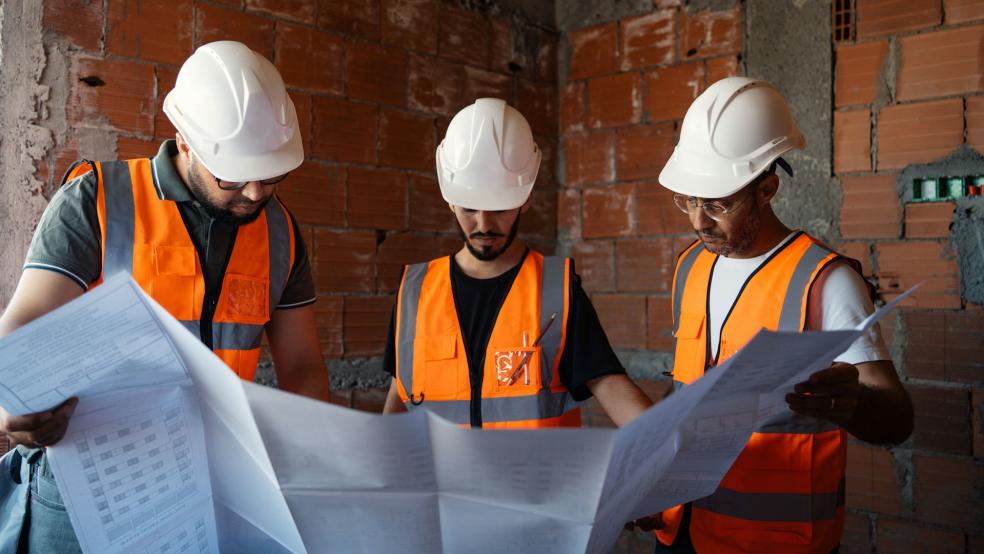
The Overlooked Role of Drainage in New-Build Developments Across the UK
Across the UK, the property market continues to experience steady growth, with new-build housing developments rising to meet the demand for modern, sustainable living. While developers and buyers alike often focus on design, energy efficiency, and location, one critical factor is frequently overlooked: drainage.
Behind every successful housing project lies a robust drainage strategy. Without it, even the most attractive developments can face long-term structural risks, costly repairs, and reputational damage for both developers and contractors.
Why Drainage Matters More Than Ever
The consequences of poor drainage extend far beyond surface water pooling after heavy rain. Inadequate drainage can lead to waterlogging, flooding, foundation weakening, and persistent damp or mould. For homeowners, this translates into health risks, financial strain, and a decline in property value.
For developers, the stakes are equally high. Drainage issues can cause planning refusals, construction delays, and future liabilities that erode trust with buyers. At a time when sustainability and resilience are top priorities, neglecting drainage in new builds is no longer an option.
Regulatory Pressures and Developer Responsibility
UK planning authorities are increasingly strict when it comes to surface water management. Sustainable Drainage Systems (SuDS) are no longer considered optional but essential to gaining approval for large-scale developments. Councils now expect developers to demonstrate robust drainage strategies that align with environmental standards and long-term community safety.
This shift has placed more responsibility on developers to work closely with experienced contractors and drainage specialists. The goal is clear: build homes that stand the test of time while protecting the wider community from avoidable infrastructure challenges.
The Role of Drainage Specialists
Behind every effective drainage system are contractors who understand the complexities of ground conditions, water flow, and compliance requirements. Two companies leading the way are:
-
BDS Drainage – A trusted London-based blocked drains and drainage specialist, working with both residential and commercial projects to prevent water damage and ensure long-lasting infrastructure. With extensive experience in urban environments, their expertise has become essential for developments across the capital.
- Any Drains – Based in Kent, they bring tailored drainage solutions to housing and commercial projects across the South East. Their proactive approach ensures developments are equipped to handle heavy rainfall and long-term usage, reducing the risk of future complications for developers and property owners alike.
Both companies highlight the importance of working with skilled drainage partners from the early stages of a project. By embedding drainage planning into the construction process, developers can save time, money, and reputational risk.
Building More Than Properties – Building Reputation
Strong infrastructure lays the foundation for resilient developments, but reputation is built in other ways too. Even the most skilled contractors and specialists must ensure their services are visible in an increasingly competitive marketplace.
This is where One Base Media plays a pivotal role. As a leading construction marketing agency, they specialise in helping contractors, property service providers, and tradespeople stand out online. From website development to SEO and digital campaigns, One Base Media ensures that companies like BDS Drainage and Any Drains Direct Ltd reach the right clients and demonstrate their expertise effectively.
The True Cost of Overlooking Drainage
While it may be tempting to cut costs in unseen infrastructure, the financial and reputational consequences are significant. Drainage failures can result in expensive remediation, legal disputes, and negative publicity. For buyers, unresolved drainage issues quickly become deal-breakers, driving down property demand and resale value.
Recent years of heavy rainfall and flash flooding across the UK have further highlighted the urgent need for developers to take drainage seriously. Future-proofing housing estates means prioritising the systems that protect properties, communities, and investments.
Conclusion
The UK’s property sector is evolving rapidly, but one truth remains unchanged: drainage is fundamental to the success of any development. By investing in proper systems from the outset, developers safeguard not only their projects but also their reputation with buyers and local authorities.









